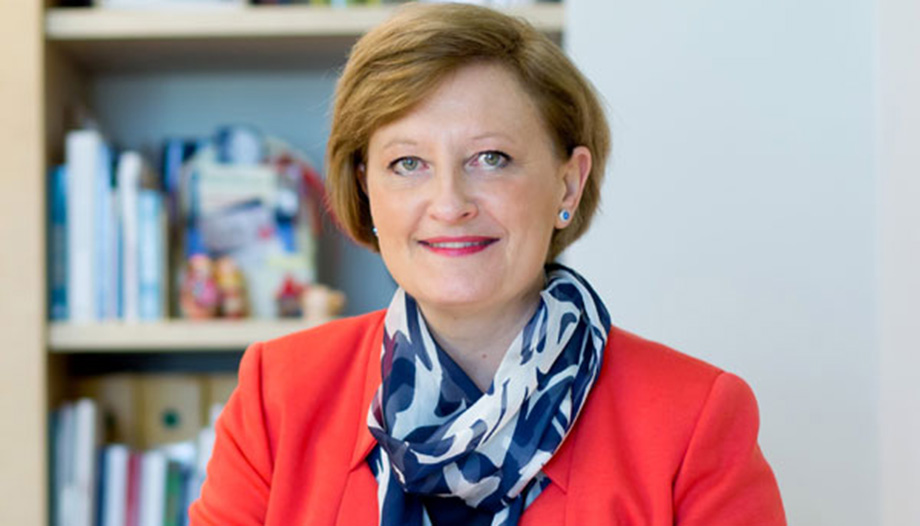Marta Risari participates, from April 12 to 16, at the extraordinary general congress of the Prelature of Opus Dei. This meeting, convoked by the Prelate, Msgr. Ocáriz to adapt the statutes of the Work to the recent apostolic constitution. Praedicate EvangeliumThe event was attended by some 300 people in Rome.
The congress participants, men and women from all over the world, will give voice to the suggestions sent from all over the world and will address the changes proposed by the Holy See through the Motu Proprio. Ad Charisma Tuendum.
Risari emphasizes in this interview his conviction that "the modifications that will be made will serve to explain more clearly the reality of Opus Dei".
You are one of the congresswomen, can you tell us about your background?
-I was born in Milan, where I studied Economics and Business at Bocconi University, and I have been living in Rome for 20 years. I have been working in the management of several university initiatives and since 2009 in the University Bio-Medical Campus, an apostolic initiative of the Opus DeiHe is the Deputy General Director of the University Polyclinic.
It is a hospital on the southern outskirts of Rome that provides public health services, with 400 beds, an emergency department with more than 30,000 admissions per year and all outpatient services. In short, a managerial experience in healthcare with a great passion for the training of young people, both among students and collaborators.
How do you combine this professional vocation with your particular call to Opus Dei?
-The very hard years of the pandemic, lived from the inside in the governance of a hospital where we treated more than 1,300 seriously ill Covid patients and established safe ways to continue caring for thousands of cancer patients, helped me to grow in the determination to make my work a service, seeking in prayer the light to make daily decisions truly oriented to the needs of those close to us.
I am often helped by a thought of St. Josemaríawho said that behind the dossiers there are people to be helped, to whom the Love of God must reach. In my case, perhaps it is even more evident because when I study a document, a hospital report, I think of the sick, their families, whom I also want to help with closeness and affection.
In addition, for the past two years I have been coordinating the work of the women's circumscription of Opus Dei in central and southern Italy. In particular, I am dedicating myself to listening to the people of the Work and this leads me to give thanks to the Lord by touching with my own hands how deeply rooted and lived by so many women is the charism of Opus Dei of sanctification in the midst of ordinary realities, at work, in the family.
I have met in various cities, large and small, in central and southern Italy, many women of Opus Dei, professionals, retirees, mothers of families, of various ages and social conditions, who try to make their lives a service to God and to others, in the midst of the thousands of problems and sufferings of life, but with such simplicity and with the joy of one who knows she is a beloved daughter of God.
The congress has received suggestions from all over the world. What issues have been referred to most frequently?
-It is a great joy for me to see how many people have wanted to send suggestions for the General Congress. It is truly a moment in which the Holy Spirit manifests himself with his light. So many suggestions and considerations have come in on the topics raised by the Motu Proprio, which show how the Holy Spirit is manifesting his light. charism of Opus Dei is life and life lived.
Some people have suggested that the Statutes should also give more space to the charisma aspects of the Opus Dei that illuminate daily normality, the life of prayer at work, the desire to evangelize one's own family and professional world, etc.
Many of these suggestions, as the Prelate has written to us, will also be the object of study and development in the coming years, even if they are not specifically related to the changes in the Statutes requested by the Pope.
For example, it would be interesting to specify that the laity are faithful of their dioceses (just like any other laity). To be part of the Opus Dei detracts nothing from their being faithful of the dioceses. Although it is evident to us, perhaps it was not explicitly expressed in the Statutes.
In this sense, the modifications that are made will serve to explain more clearly the reality of Opus Dei. With fidelity to the charism received by the founder.
In the motu proprio "Ad charisma tuendum"the Holy Father refers to the charism of Opus Dei as a gift of the Holy Spirit for the Church. As a laywoman and scientist, is there any aspect of this charism that seems most relevant to you for the evangelization of today's world?
-One aspect I would highlight is the theme of friendship and trust as a specific and essential feature of the evangelizing work of Opus Dei, as the founder saw it.
Part of our charisma is to bring friendship with Jesus to our friendships, with simplicity and truth: there are many occasions in which we can help and be helped to rediscover Love and trust in God.
Sometimes it is enough to open up a little, telling with simplicity what is in our heart, to those who share with us a moment of our life, in the family, in social or professional relationships.
That is, closeness and friendship with many people of all kinds, and commitment to professional work. Two elements that, with God's grace, have great potential in evangelization.







